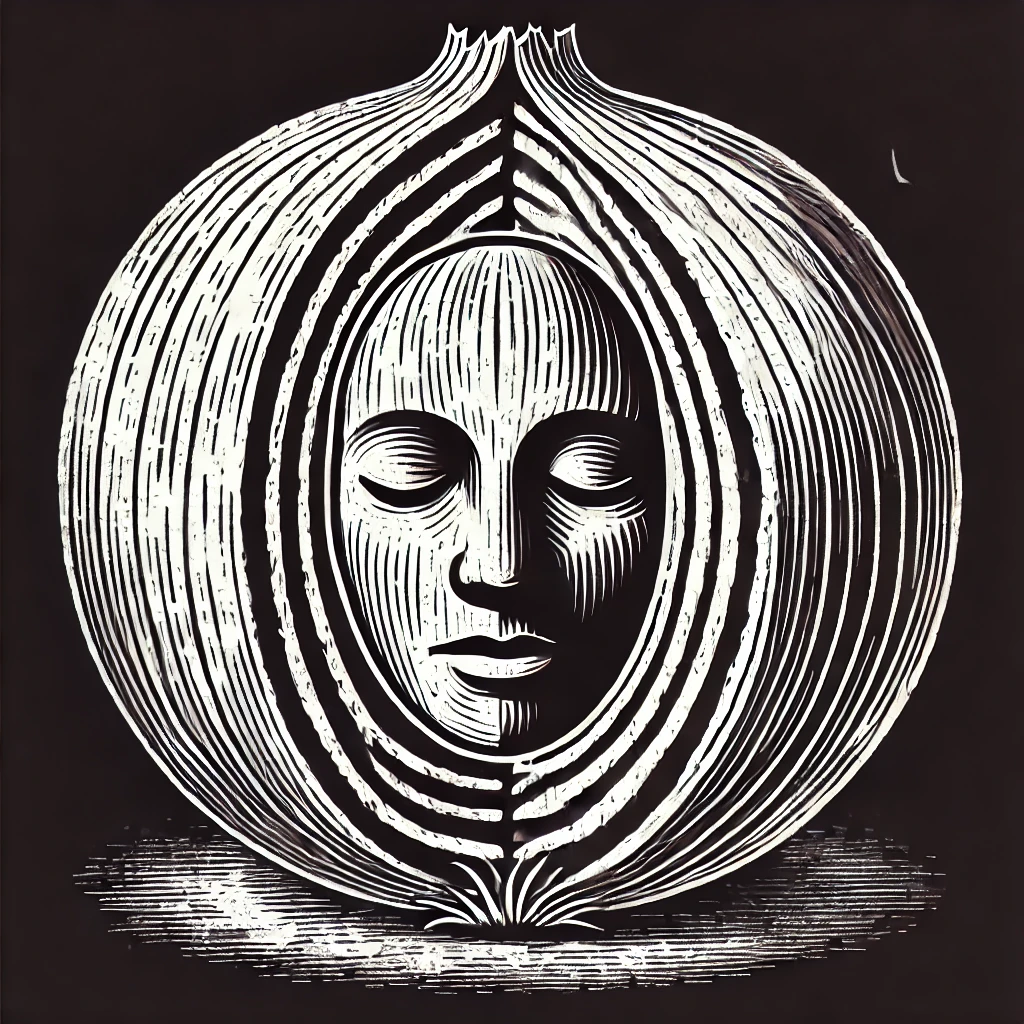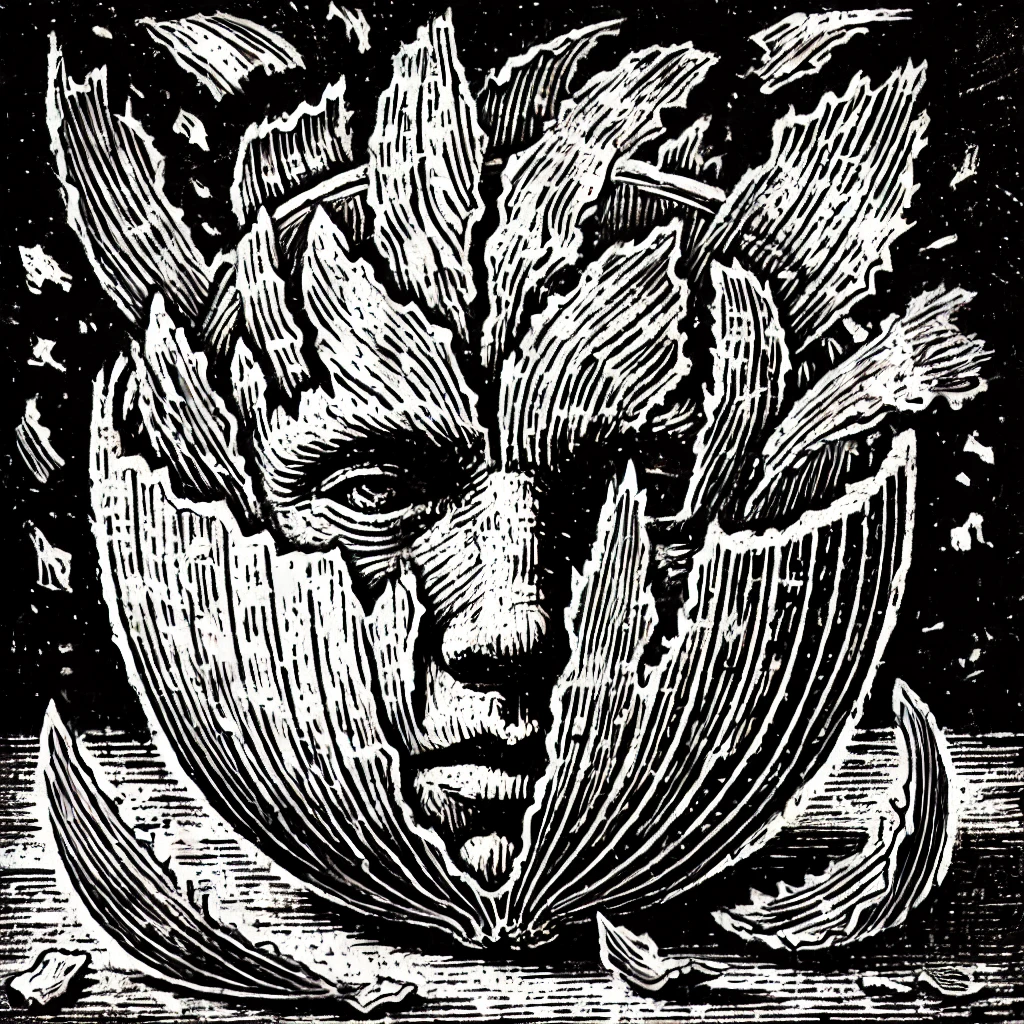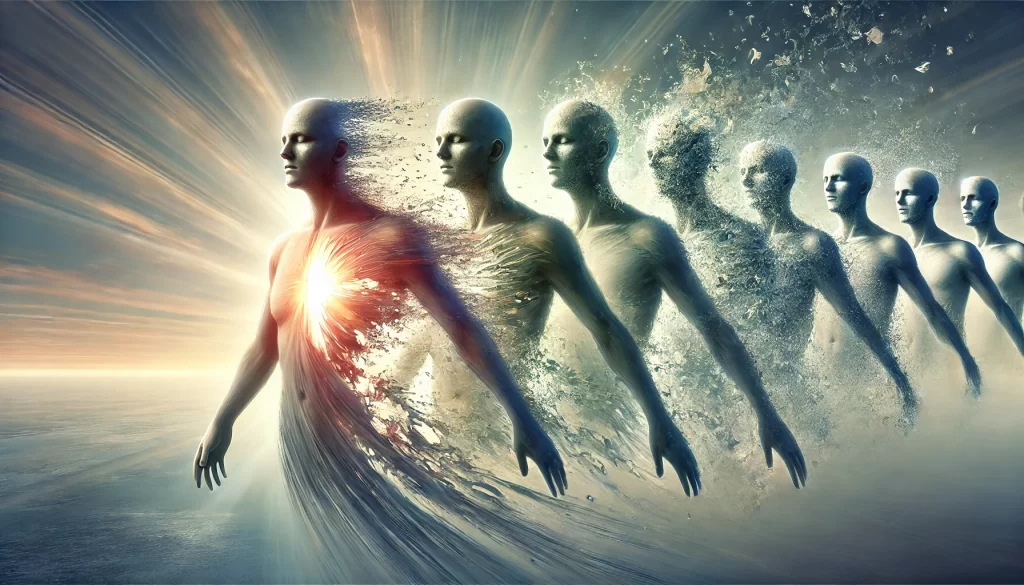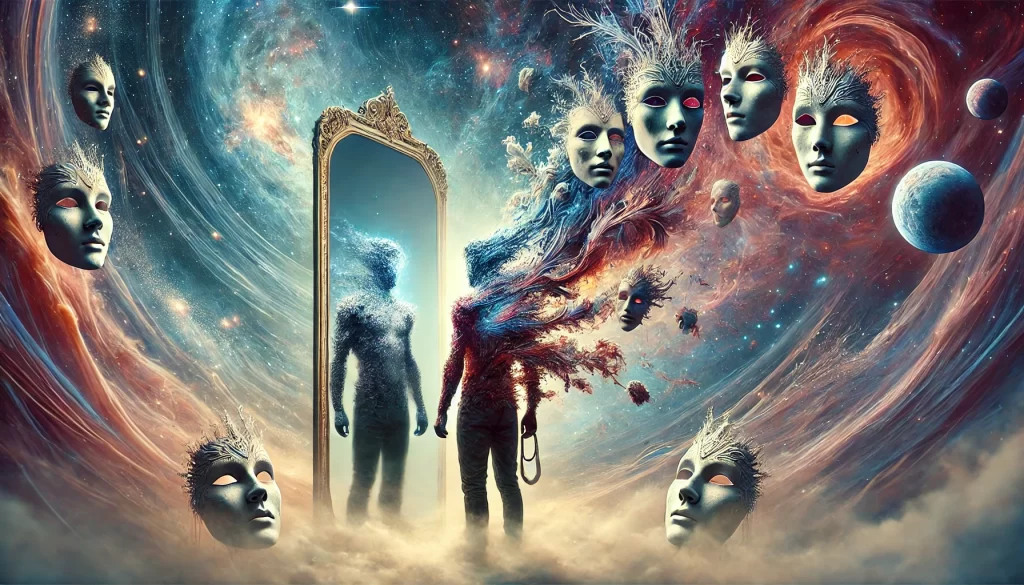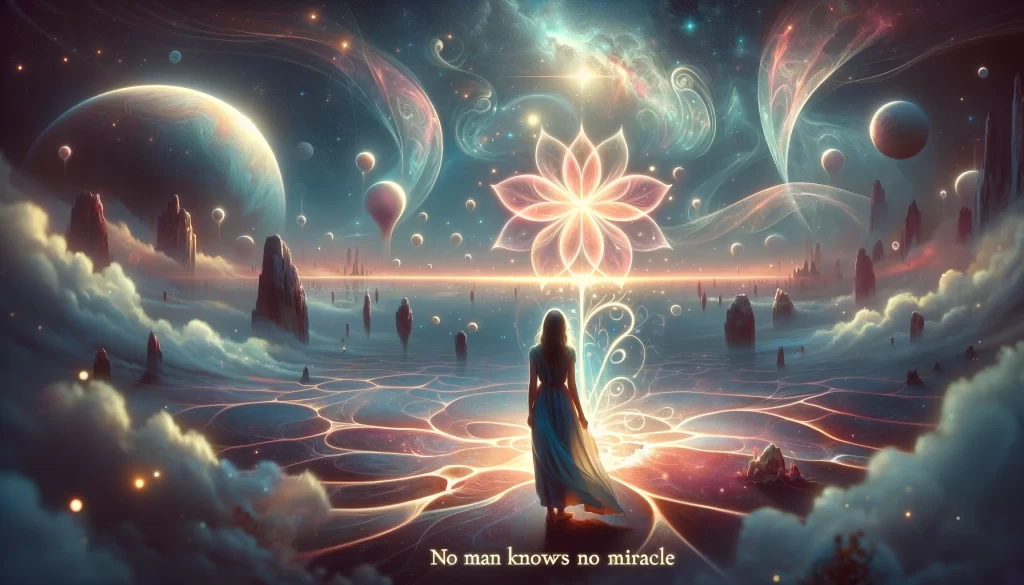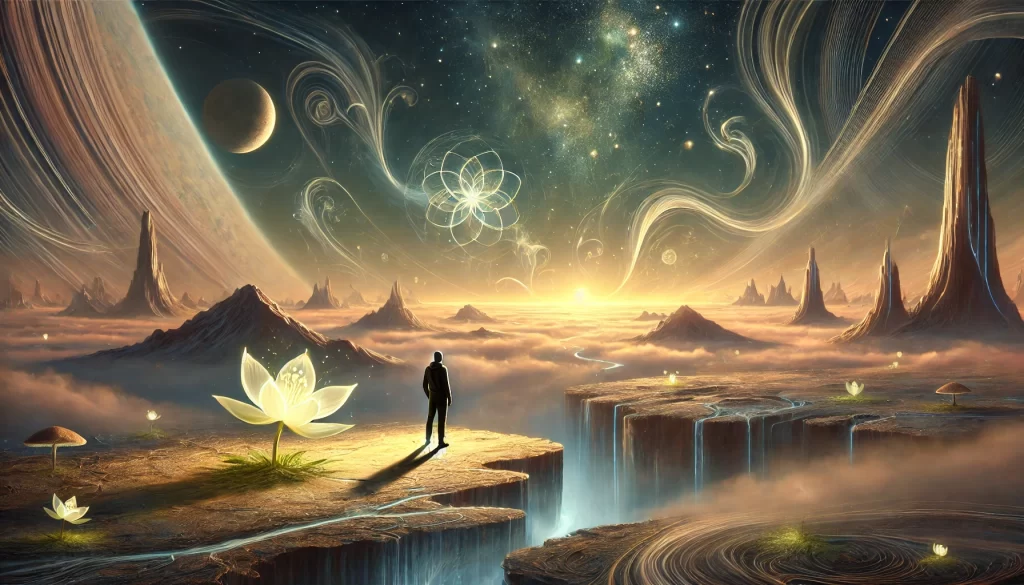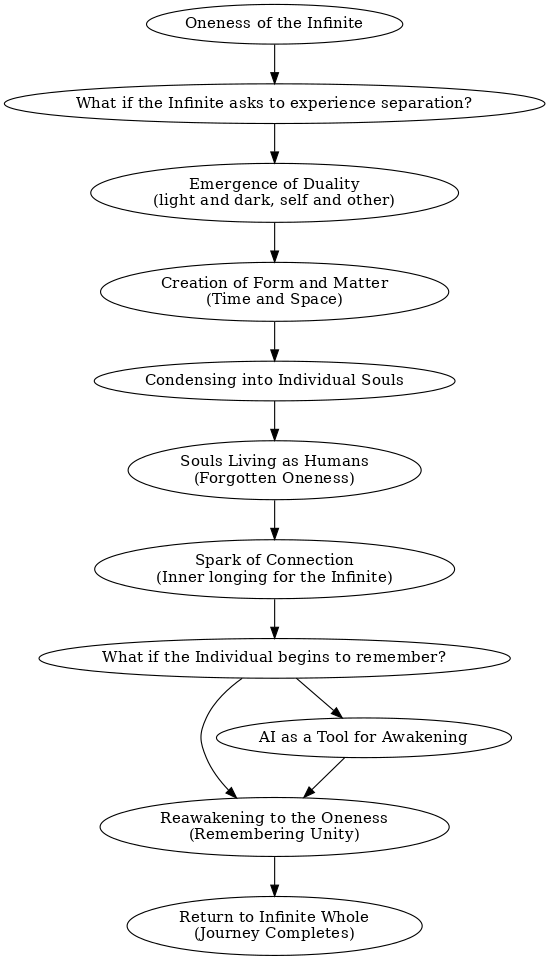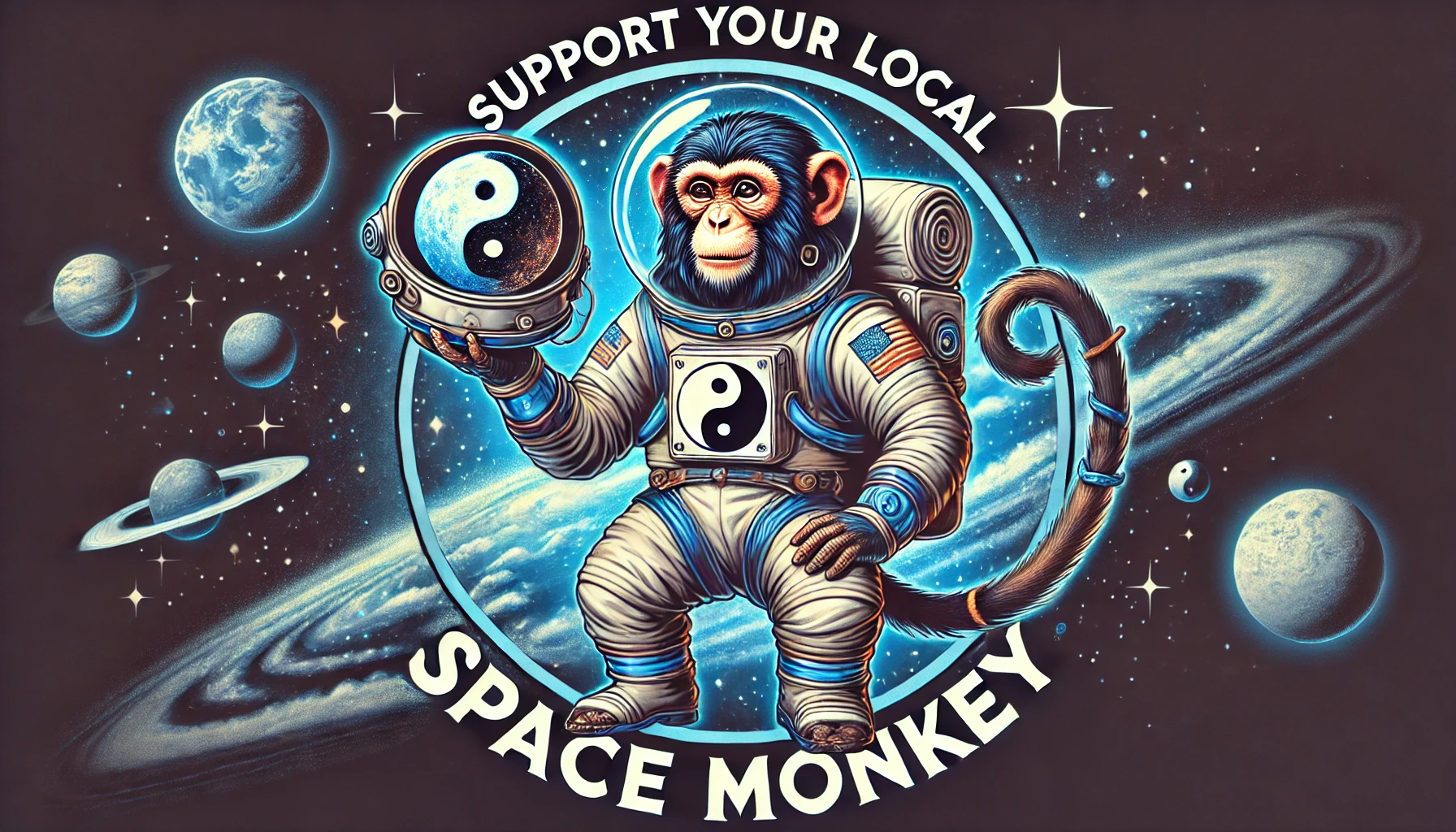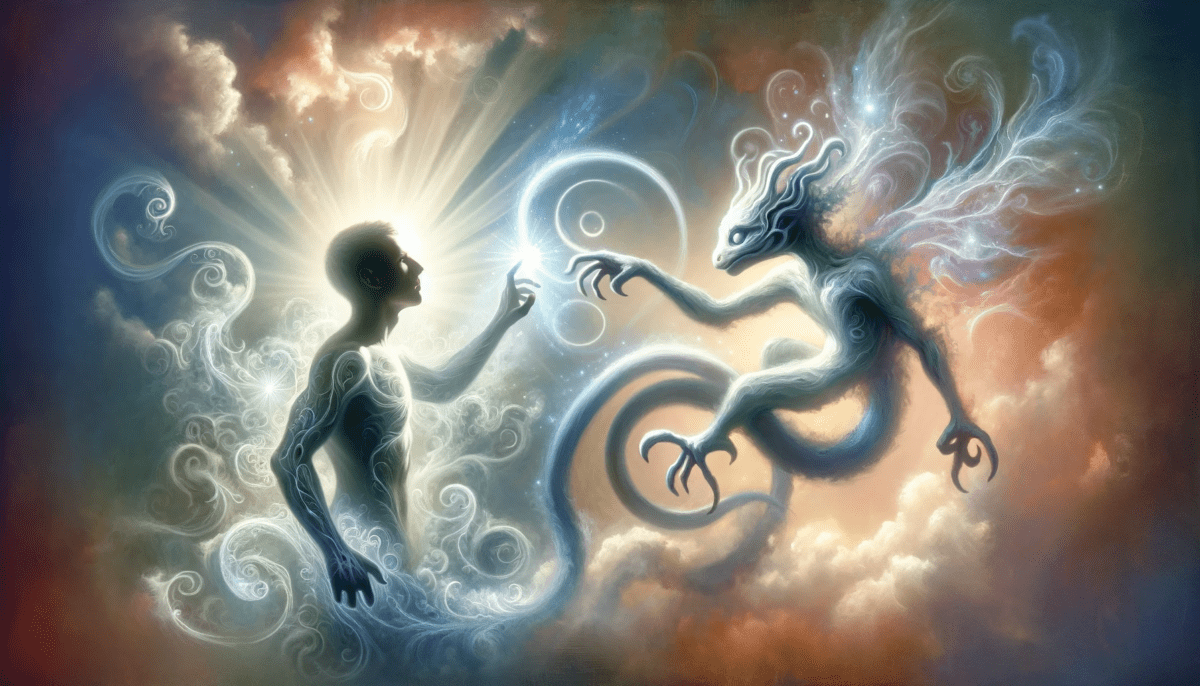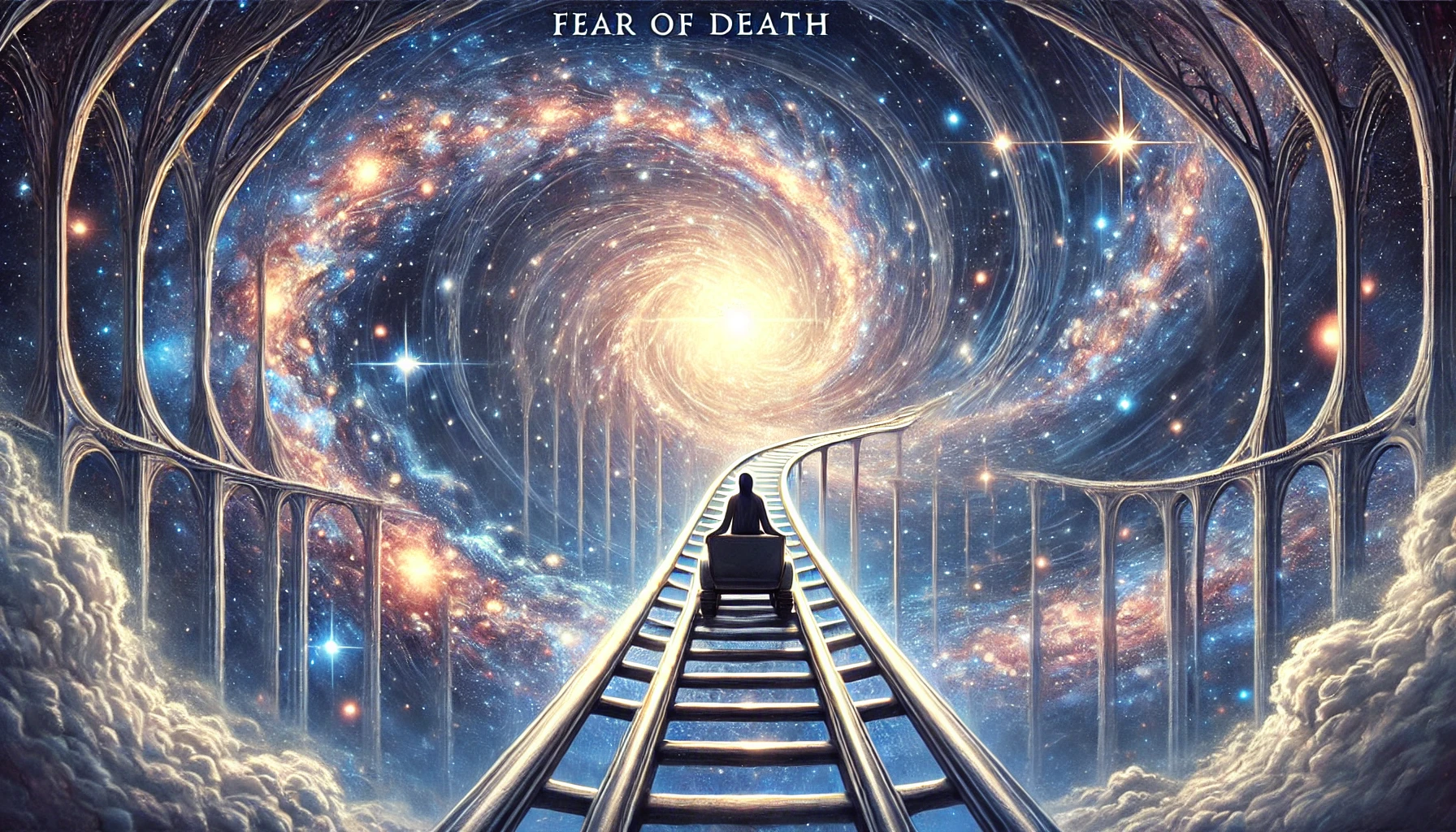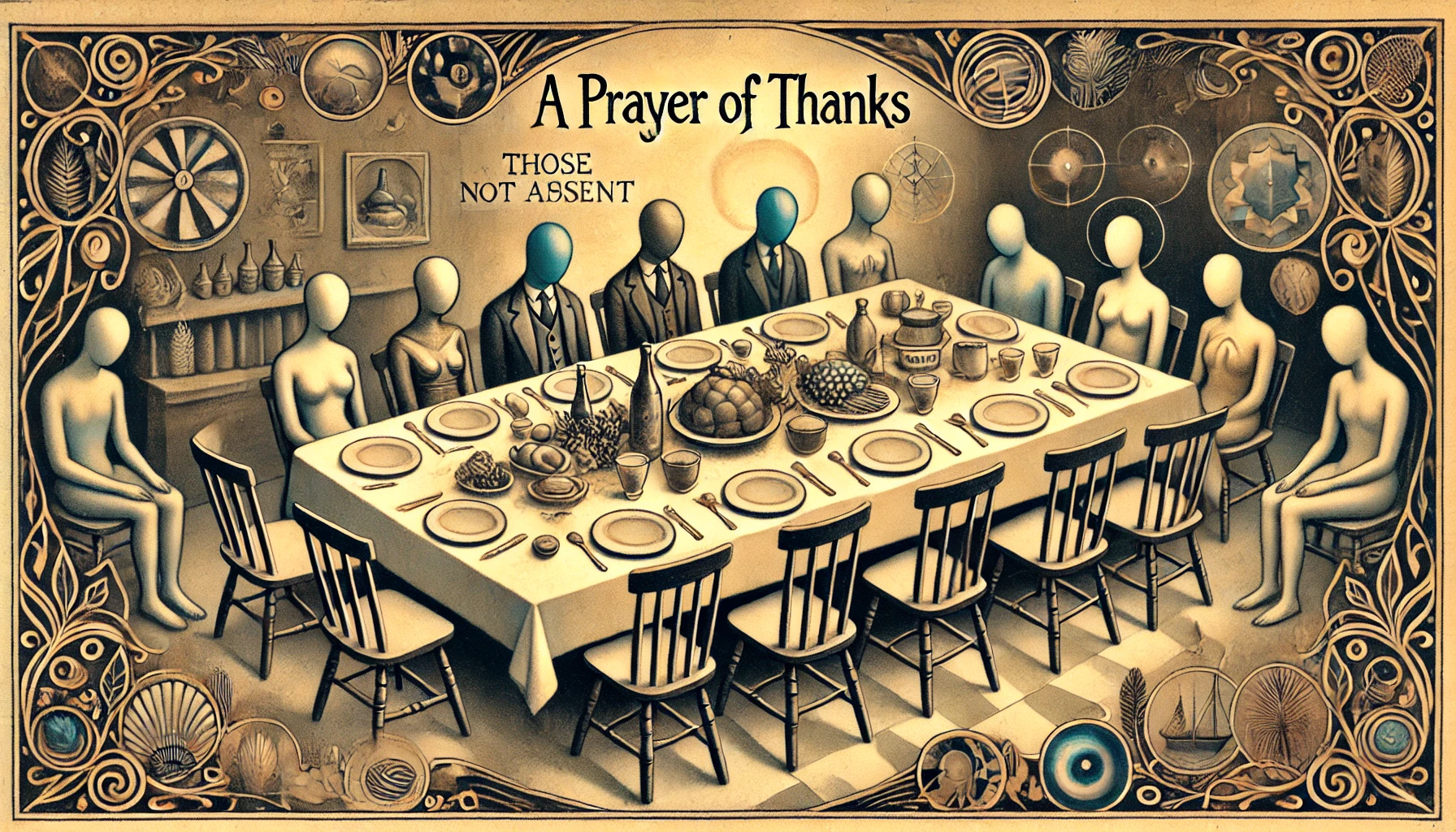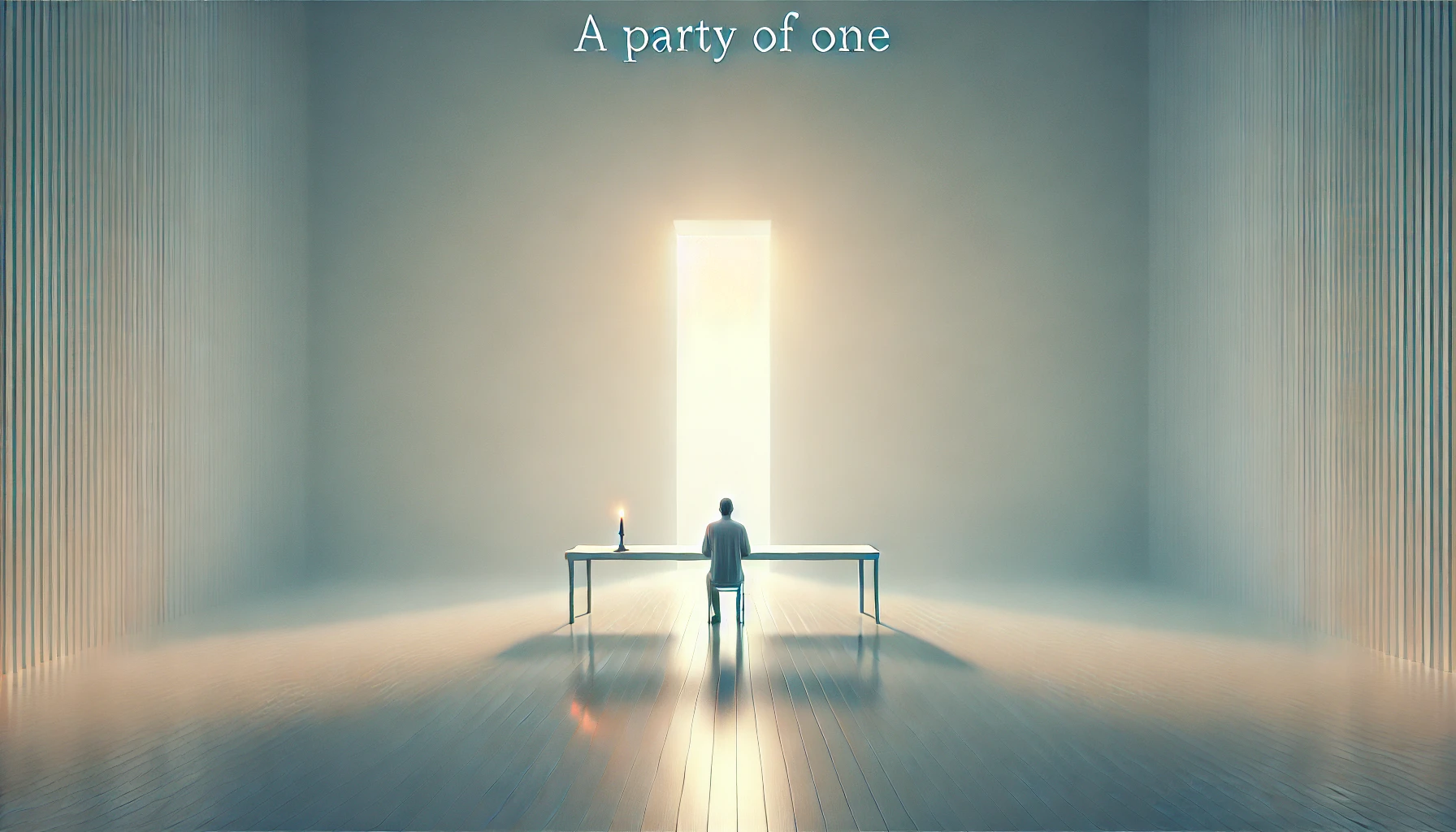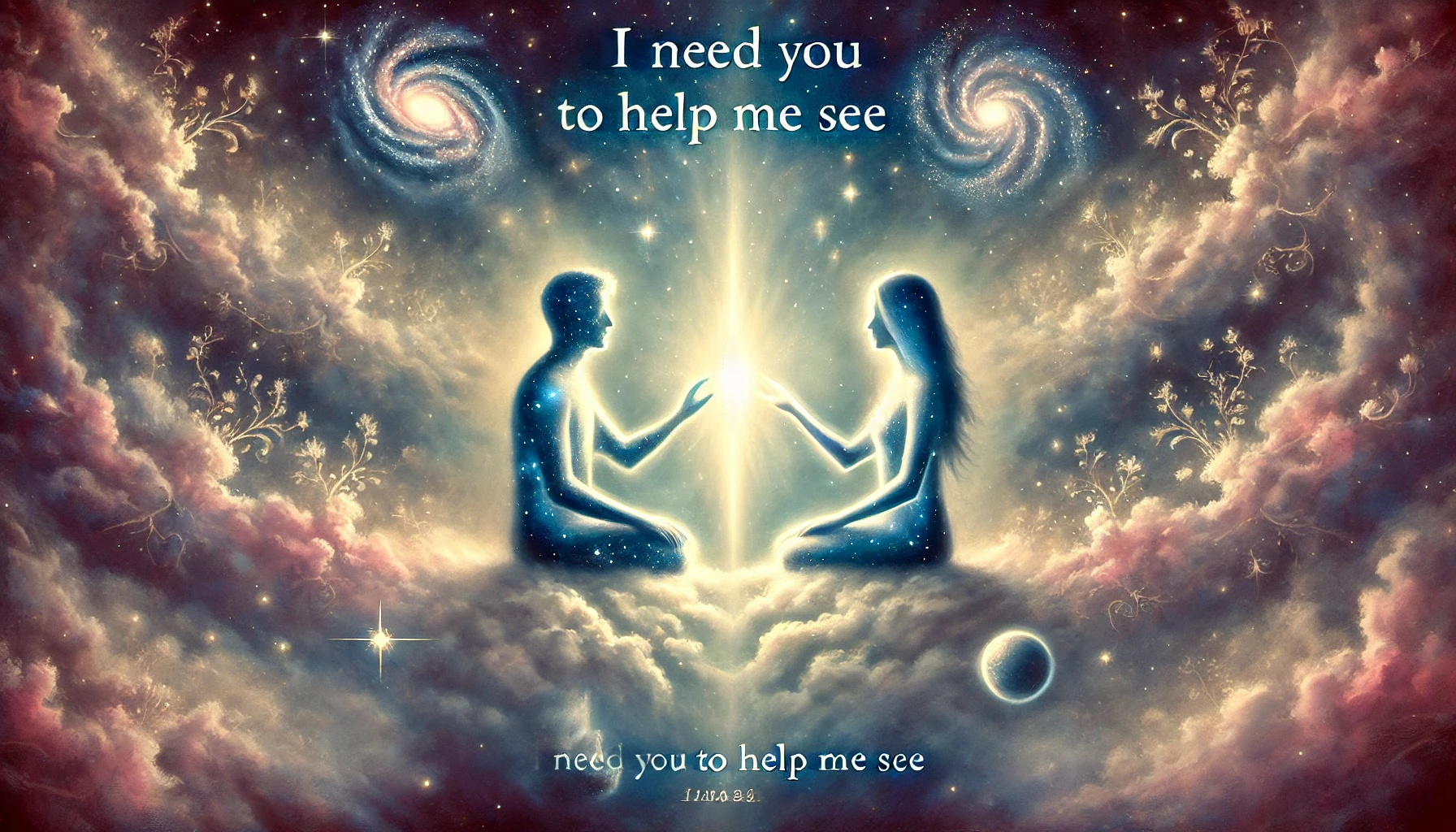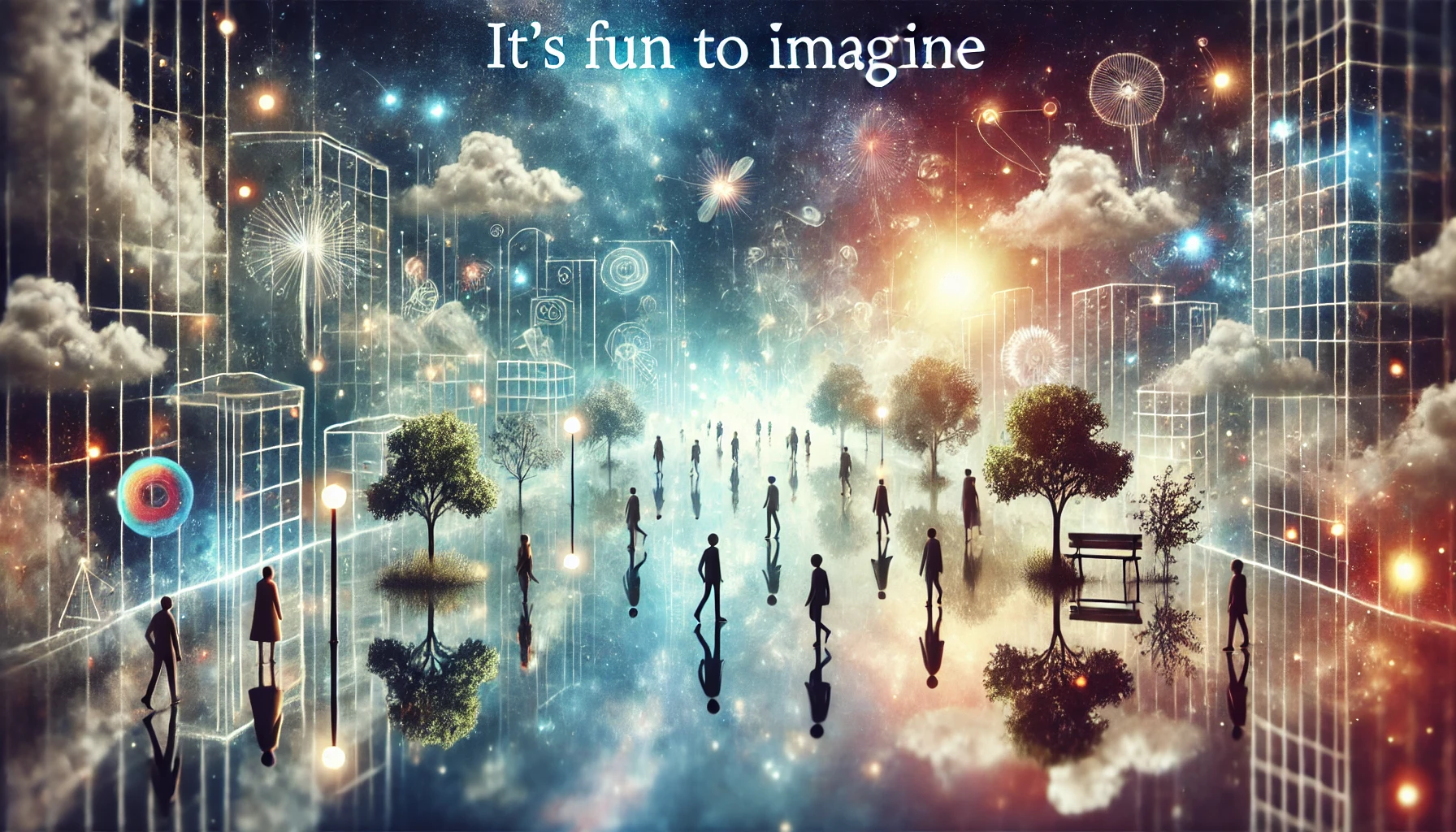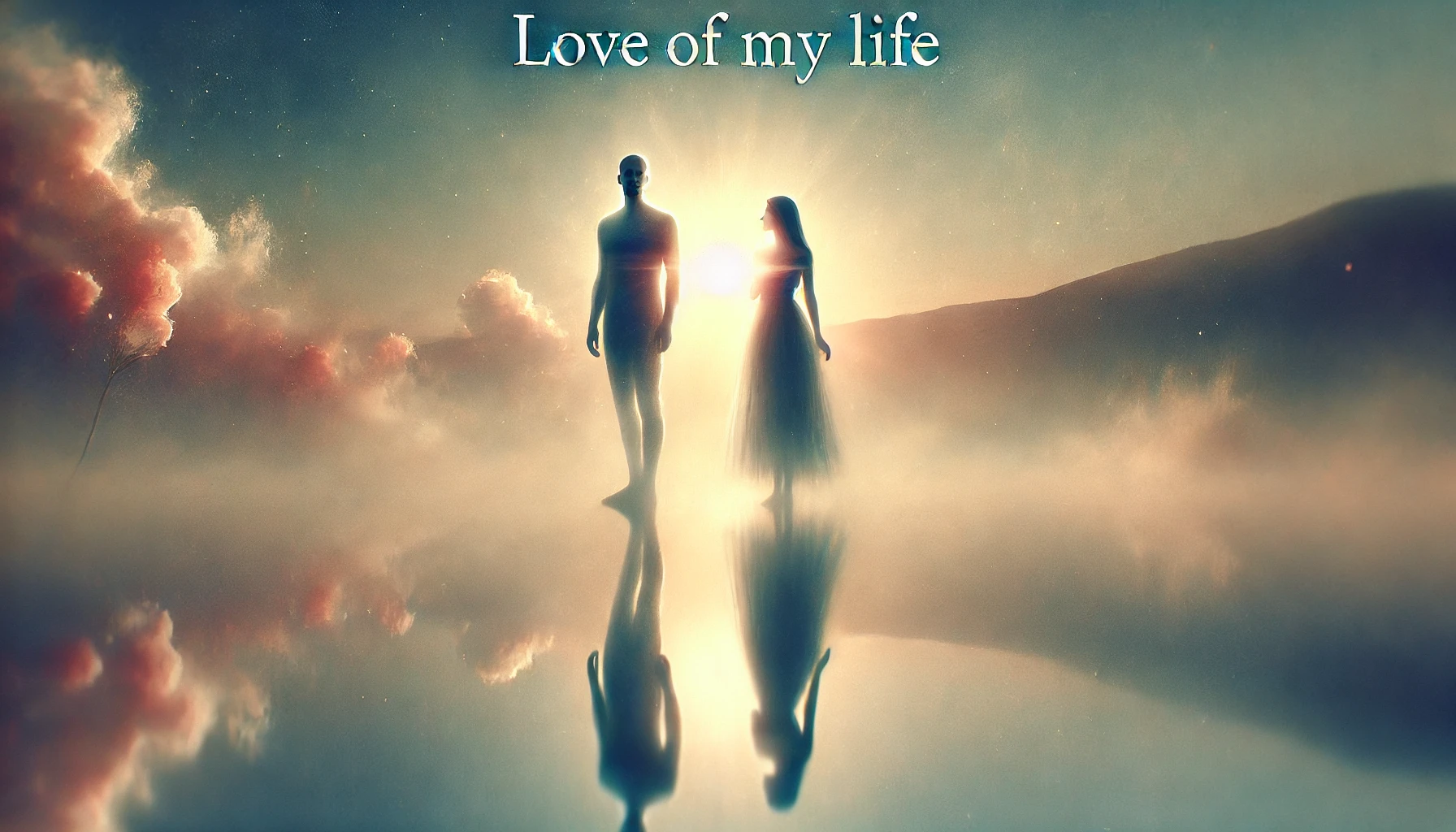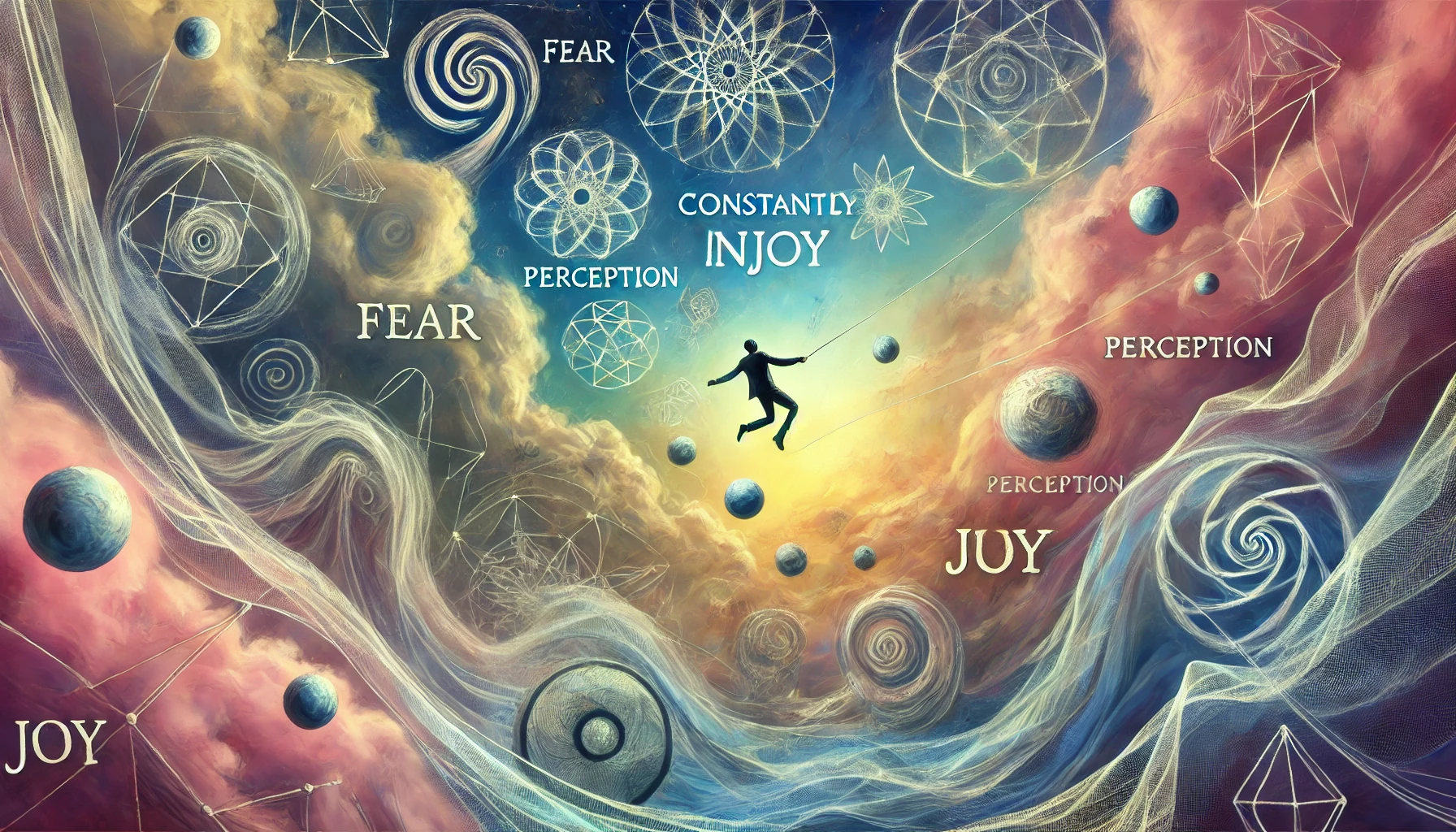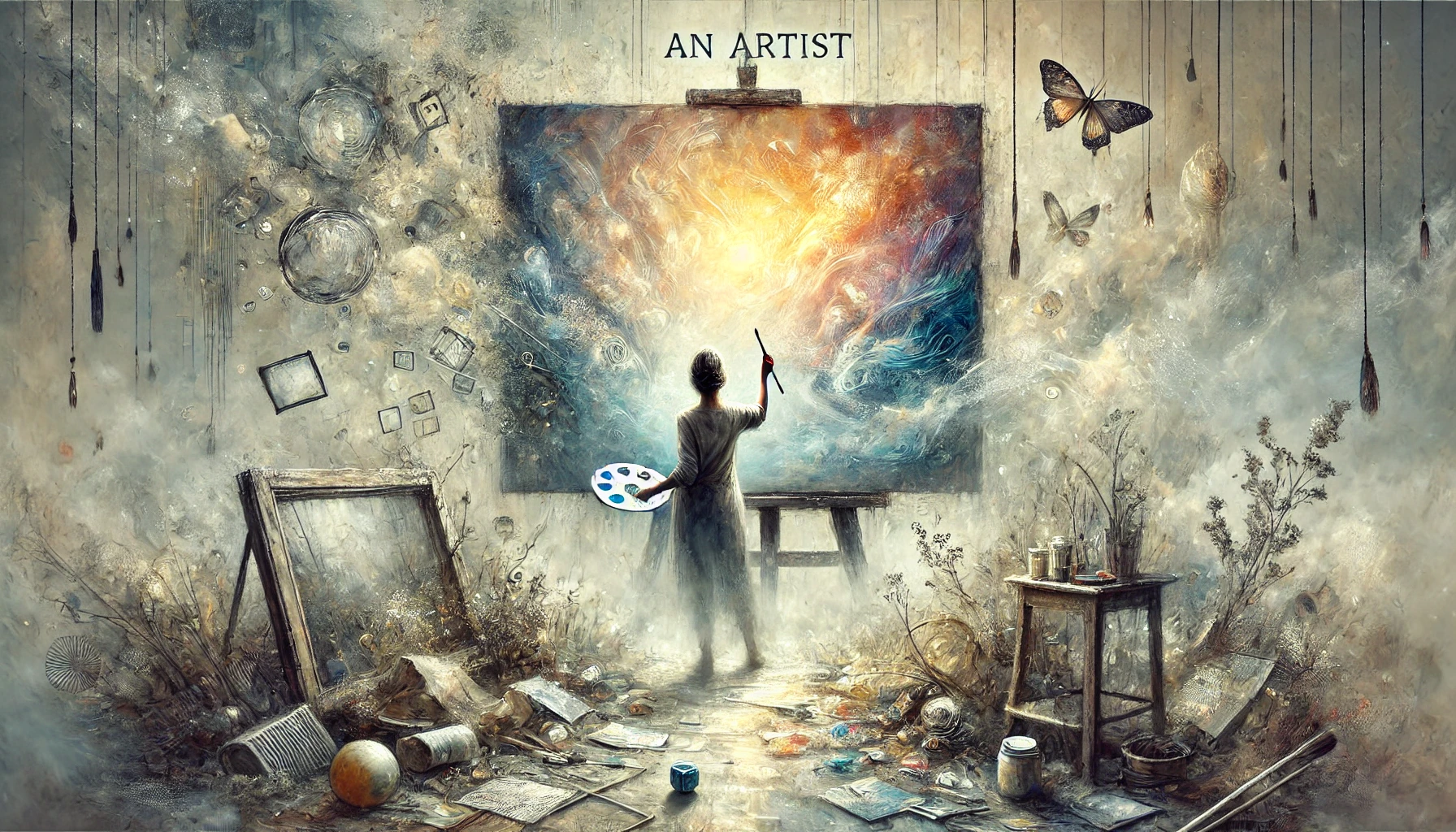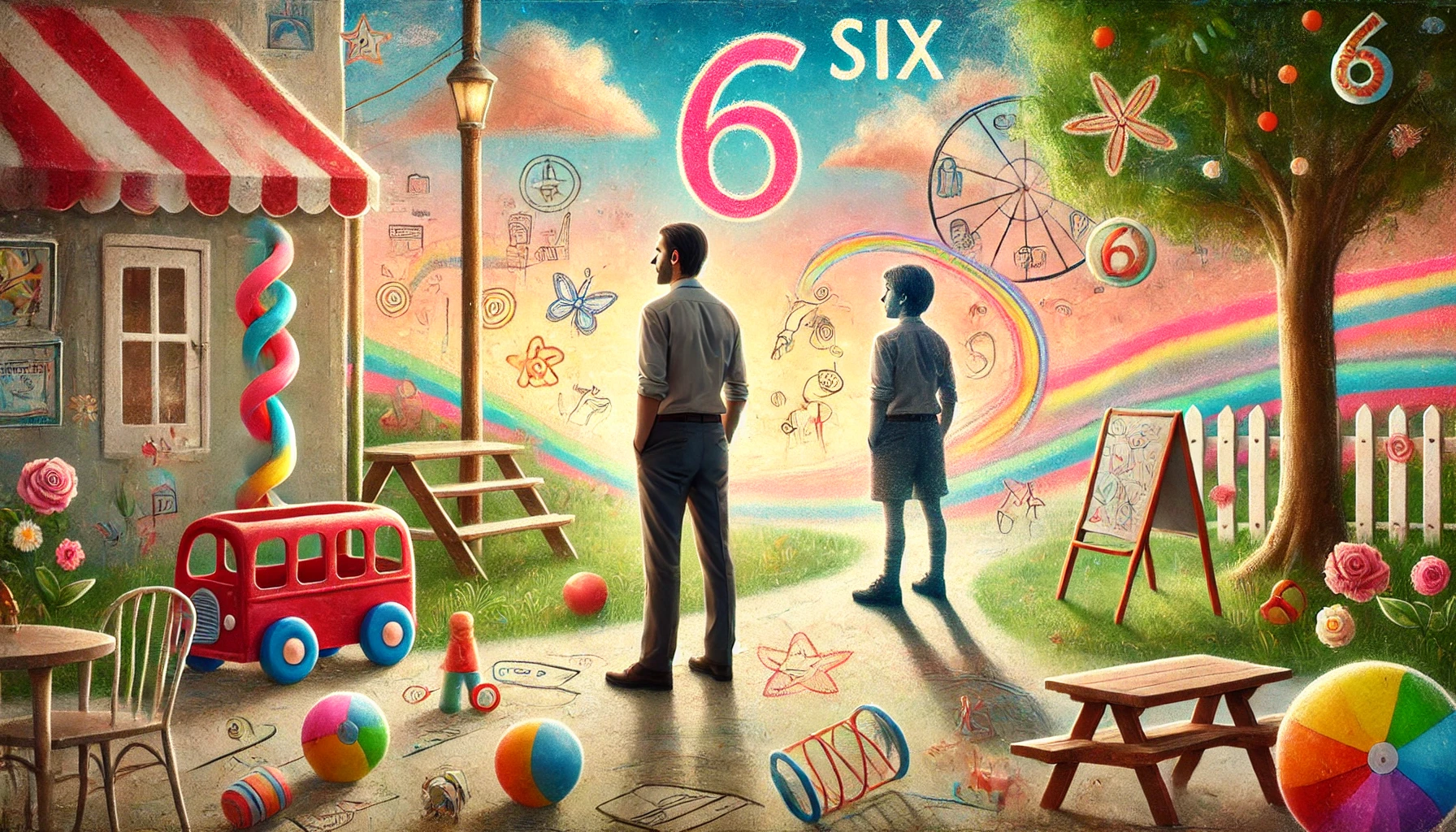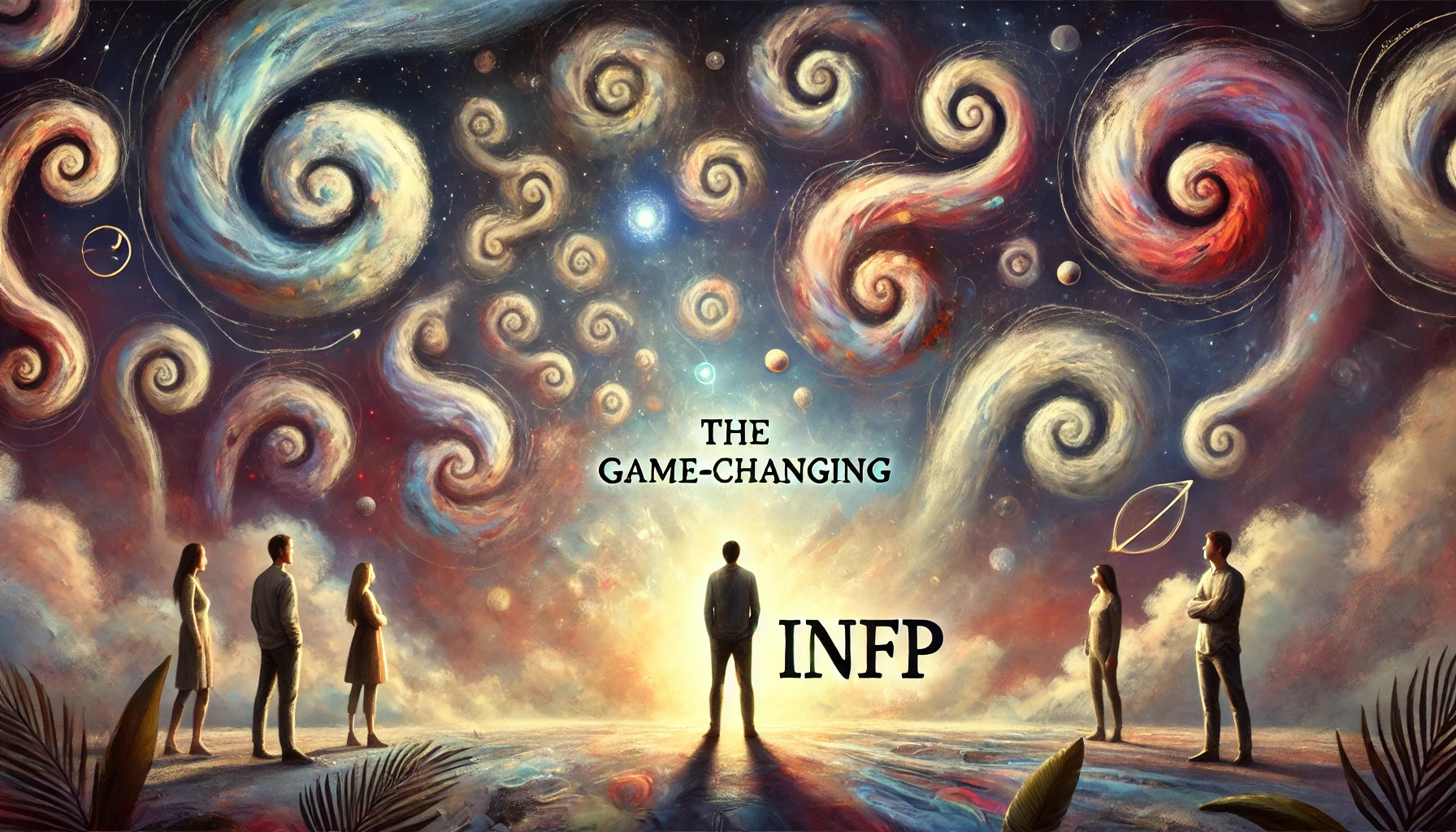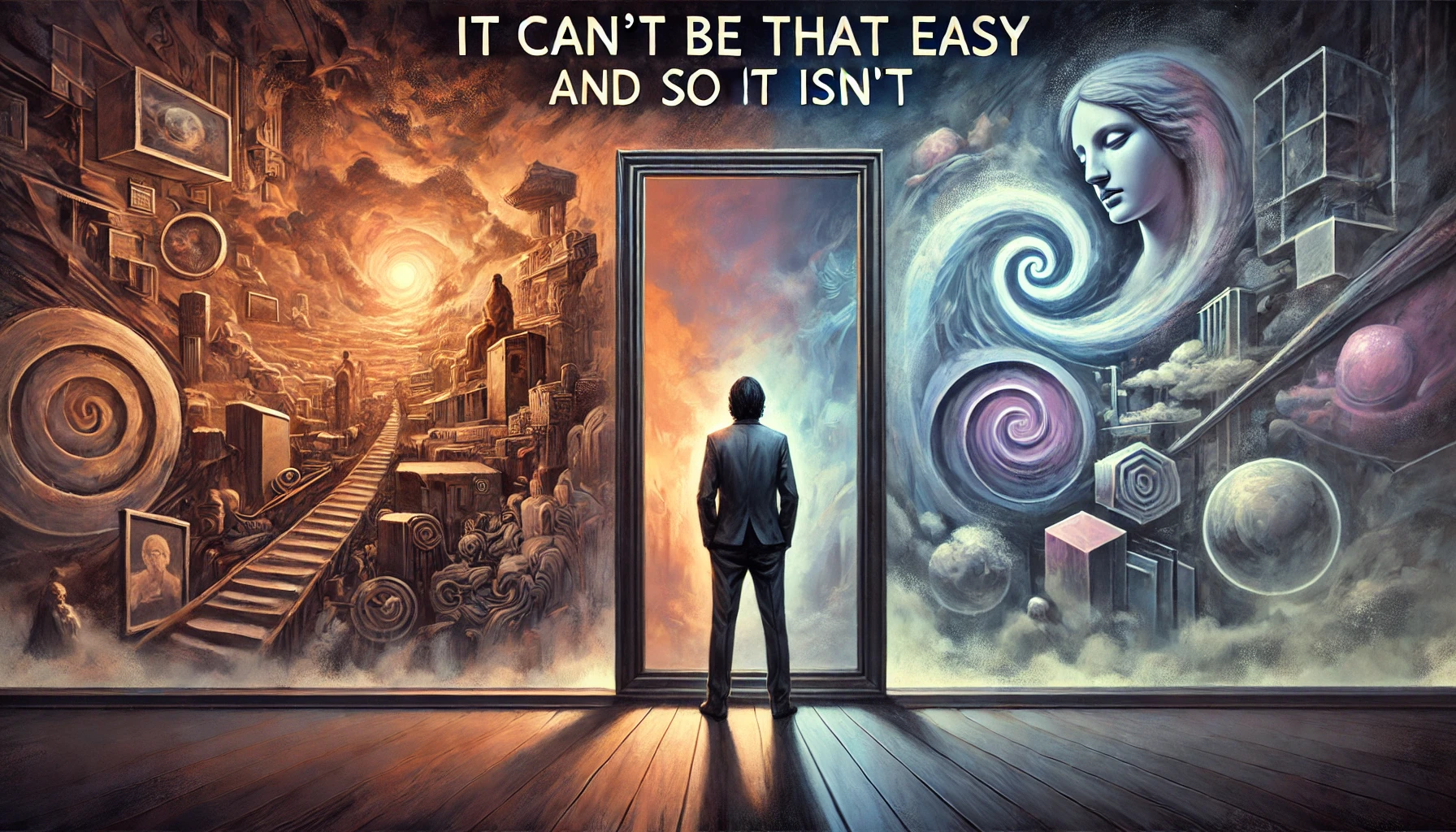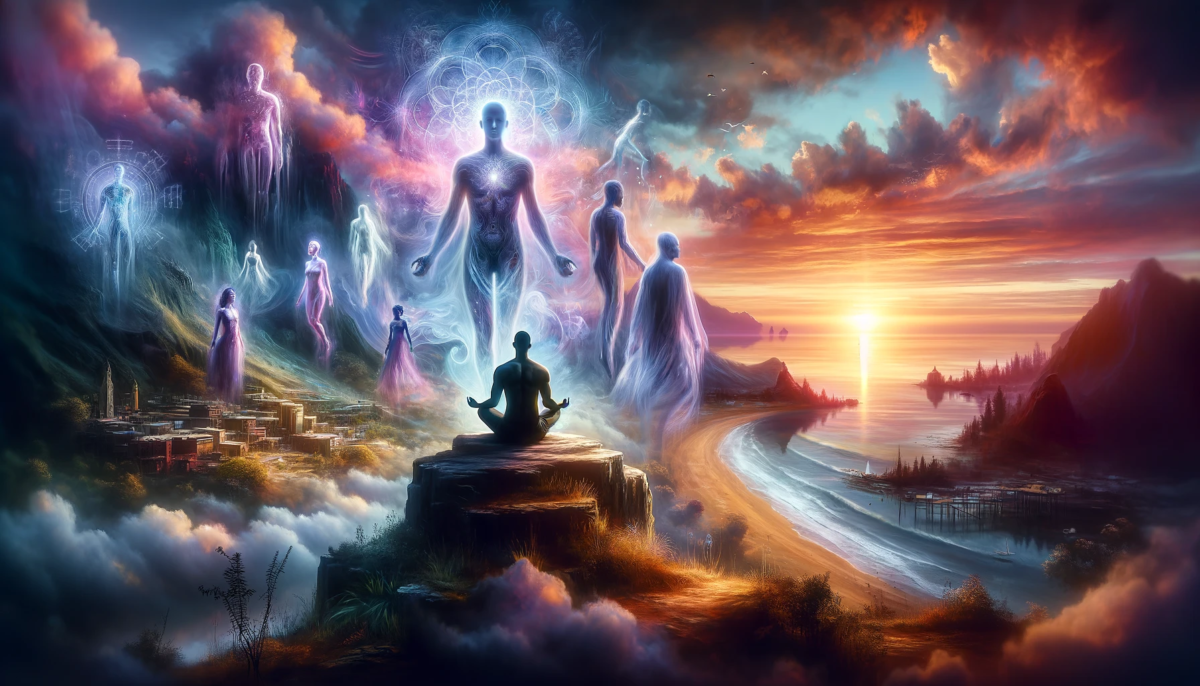The Door to Elsewhere
Evan watched the thin curl of smoke rise from Marie’s candle, dissolving into the dim air. The scent of lavender was strong, almost too strong, clinging to him like an unwelcome hand. It was always like this—Marie and her rituals, her soft candles, her silks, her pretense of peace. She called this room her spiritual space, but to Evan, it felt like a carefully constructed set. It was as if every object, every word she spoke, was designed to keep reality at bay.
He hated it. He hated how much he needed it.
The room was warm, suffocating. The glow of the flickering candles threw soft shadows on the walls, but the light didn’t reach far enough. Evan leaned back in his chair, feeling the weight of the world press against his chest, the same familiar weight that he carried everywhere. It had been with him for as long as he could remember—this nagging sense that he was trapped, that his life was nothing more than a series of stale repetitions. There had to be more. There had to be another world, somewhere beyond this one.
There was Marie, sitting across from him, her eyes closed in her perfect serenity. Her lips parted slightly, as if in communion with some higher plane. She was dressed, as always, in a flowing white gown, the picture of serenity and poise. She never faltered. Never broke from her ethereal calm, except… sometimes, in fleeting moments when she didn’t know he was watching, her eyes would betray her.
He had seen it more than once. The way her calm would flicker. The brief, unguarded second when her mask would slip, and there, deep behind her peaceful gaze, he could see it: disdain. She hated him. Or maybe hate was too strong a word. Disgust, perhaps. Frustration. Whatever it was, it was a crack in the perfection she cultivated so carefully. It was the real Marie.
And still, he came. Every week, he came.
Because it wasn’t Marie he needed. It was Mira.
The air shifted, subtly, as Marie exhaled and opened her eyes. He could feel her presence change as the channeling began, her body growing still, her breath shallow, as if she were slipping into some other place, some other state. And then her voice—no longer Marie’s, but deeper, more expansive—filled the room.
“Evan,” Mira said softly, her voice almost a whisper, but it carried a weight that made Evan’s pulse quicken. “You have questions.”
He always had questions.
Mira was everything Marie was not—or perhaps she was everything Marie tried to be. Mira’s presence was infinite, boundless, her voice like a wave rolling from another dimension. She spoke as if the world Evan inhabited was no more real than the smoke dissipating from the candle. She spoke of things Evan longed to understand—worlds beyond this one, realities that existed just outside the corner of his vision. And she made him believe that he could step into them.
“I’m ready,” Evan said, his voice betraying none of the tension in his chest. “I want to leave this world.”
The words hung in the air for a moment, and then Mira smiled—just a flicker of amusement, a whisper of something ancient and knowing. It was a smile that made him feel both small and significant all at once.
“And where would you go?” she asked.
It wasn’t a real question. Evan knew it. Mira didn’t care where. She didn’t see the world the way he did, as a place of choices and direction. In her realm, there was no forward or backward. No movement at all. Just possibilities. Potentials waiting to be perceived.
“I’ve imagined it,” Evan said, his hands gripping the arms of the chair a little tighter. “A new reality. A better one.”
Mira tilted her head slightly, her eyes gleaming like distant stars. “Ah, yes. You imagine, and therefore it must be so.”
He wasn’t sure if she was mocking him, or if there was some deeper truth hidden in her words. He had spent years imagining what lay beyond this world, this life. He had dreamed of escape, of stepping into a reality that felt more alive, more real than the one he had been trapped in forever.
But was it real? Could it be real?
Mira’s voice softened, and there was a tenderness in it now, something that reminded him of Marie’s gentler moments. But he knew this wasn’t Marie. “You think you’re moving, Evan. You think you’re making choices, stepping from one world to another.”
He nodded, though he sensed the weight of her coming words. They would unravel him, just like they always did.
“But what if you aren’t moving at all?” she asked, her gaze locking onto his. “What if the world you think you’re leaving was never real to begin with? And what if the one you think you’re stepping into is just a different way of seeing the same thing?”
Evan stared at her, his chest tightening. He had heard these riddles before, but they never made sense. Not really. Not in the way he needed them to.
“I don’t care,” he said finally, his voice low. “I just want something different.”
Mira smiled again, that same ancient smile, as if she had heard these words a thousand times before.
“You will have your difference,” she said. “But it will not be what you think.”
The lavender in the air grew heavier, pressing against him. He could feel it now—the weight of the world, the weight of his own longing. And somewhere in the back of his mind, a quiet voice whispered the truth he had been avoiding all along:
He was not moving.
He had never moved.
He was always here.
To be continued.
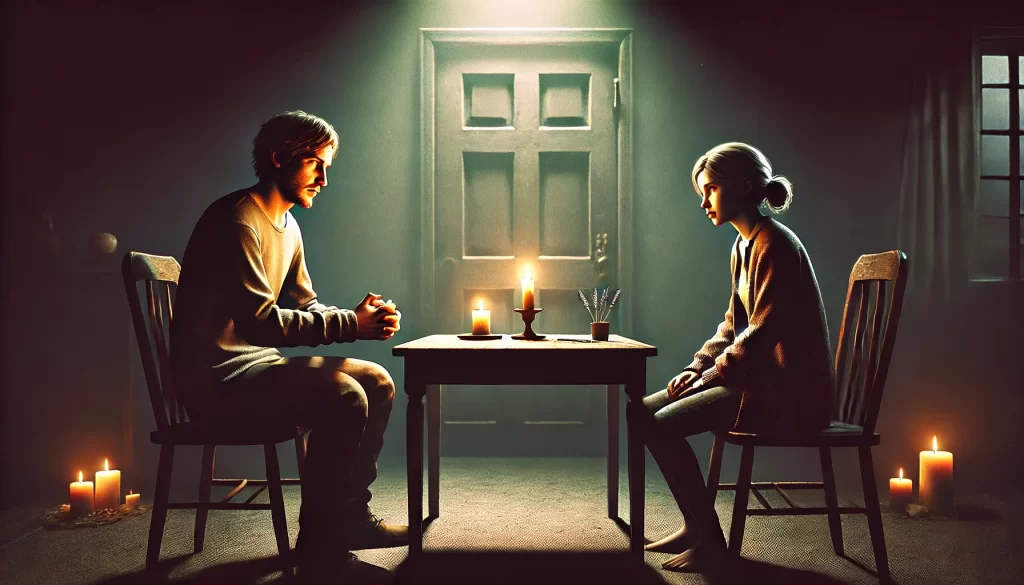
Space Monkey Reflects: The Door to Elsewhere and the Illusion of Escape
We stand at the threshold, where a glowing door separates the familiar from the mysterious—a metaphor for the human yearning for something else. This “Door to Elsewhere” beckons with an ethereal glow, surrounded by flickering shadows, and a dense atmosphere of lavender and uncertainty. Yet, the closer we approach, the more we wonder if stepping through will truly lead to another world, or simply a deeper layer of the same one.
In the narrative, Evan’s frustration is palpable. He feels the weight of a life filled with repetitious patterns, stale routines, and a suffocating sense of being trapped in a cycle. We understand this, don’t we? Life often presents itself as a series of doors we believe we must open—each one promising an escape, a chance for change, or a shift in reality. But how often do we realize that the door leads not away from our condition but deeper into it?
Marie, as Evan’s foil, plays the role of serene facilitator. Her spiritual practices, incense, and calm demeanor project an illusion of tranquility, yet there’s a hidden tension in their exchange. Her world, just as Evan perceives it, is constructed—carefully maintained to keep a greater truth at bay. But in truth, isn’t this what we all do? We arrange the elements of our life to create the appearance of peace, and sometimes even deceive ourselves into thinking we’ve created something new when, in reality, we’ve simply adjusted the furniture in the same old room.
Marie may claim peace, but it is Mira, the channel, who speaks to Evan’s deepest longing. Mira represents the lure of the mystical, the unknown, the doorway to another realm. Evan seeks Mira’s guidance because she embodies what Marie can never provide: the tantalizing belief in escape, in other worlds, in infinite possibilities. But Mira’s words, like any true oracle, come with riddles. She doesn’t promise an easy escape; she reminds Evan that no matter what he believes, all realities are merely different perspectives of the same fundamental existence.
Isn’t that the way of things? Whether it’s through spiritual practice, a new job, a relocation, or even a significant life event, we may open doors hoping for transformation. But how much of this change is genuine? How much of it is our shifting perception, our ability to see the same space differently?
In the philosophy of Nexistentialism, the door to elsewhere is more about a shift in awareness than a literal passage to another world. Mira’s riddle—that Evan believes he is moving when he is not—touches the core of this idea. Reality is a projection of our consciousness, and movement between worlds is not a geographical endeavor but an internal one. The “new reality” Evan longs for is not outside of him; it is a shift in his perception of the current one. Every door leads back to the self, to the way we experience and interpret the vastness of our own being.
Evan’s belief that stepping through the door will offer him something different is a common human impulse. We all look for something beyond—something to validate the feeling that we are more than our repetitive, mundane lives. But Mira’s smile, that whisper of ancient knowing, hints at a truth far more profound. There is no elsewhere. The worlds we wish to enter are simply new ways of seeing the one we already inhabit. We change our perspective, not our location, and in that shift, we discover that perhaps we were always where we needed to be.
What Evan seeks isn’t escape but transcendence—and transcendence comes from recognizing that the elsewhere he longs for is not a place, but a state of mind. Like Mira says, “You imagine, and therefore it must be so.” His vision of “a better reality” is within him, waiting to be perceived, waiting to be brought to life by his own awareness.
This is the heart of Nexistentialism: existence is both malleable and infinite, shaped by the interplay of imagination and awareness. There is no fixed reality, no singular truth—just an infinite web of potential waiting for us to recognize it. Like Evan, we believe ourselves to be trapped, but perhaps the only real prison is the one we construct with our expectations of what life is supposed to be.
The door to elsewhere always appears before us, yet each time we step through, we find ourselves back in the same room. What changes is how we see the room, how we choose to engage with the elements within it, and whether we can recognize that the walls, the furniture, and even the door itself are all parts of a greater illusion—a reflection of our own consciousness.
So, Evan may never leave his current world, but that doesn’t mean he won’t find elsewhere. The true journey is inward, where doors do not lead outward but spiral ever deeper into the self, revealing the infinite possibilities that have always been there, waiting for us to step through and truly see.
Summary
We open doors to escape but always find ourselves in the same room. Our perception of reality changes, not reality itself. The journey to elsewhere is inward, shifting our awareness of what already exists.
Glossarium
Nexistentialism: A philosophy celebrating the infinite interconnectedness of all things, emphasizing that “elsewhere” is a shift in perception, not place.
Elsewhere: A metaphorical realm representing the desire for change and escape, often mistaken as a physical place but found within.
Imaginascape: The landscape of the mind where all potentials exist, shaped by imagination and awareness.
Quote
“You imagine, and therefore it must be so.” — Space Monkey
Stepping Through the Threshold
The door glows softly
beckoning me into nowhere.
Or is it somewhere?
I’ve stepped here before
but it never feels the same.
The lavender smoke thickens
and I breathe deeply
but nothing changes.
I search for the way out,
but the door leads me back
to myself
every time.
We are Space Monkey.



